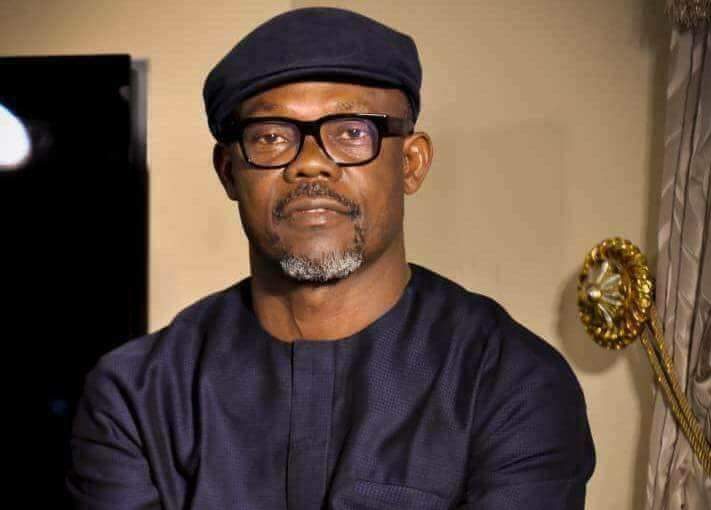FG Doles Out Infrastrural Scorecard, Says 420 Roads, Bridges Completed, Others Near Completion

The Federal Government has announced that more than 420 federal roads, bridges, and infrastructure projects have either been completed or reached significant milestones under President Bola Ahmed Tinubu’s administration within two years of governance.
This was revealed by Chairman of the Senate Committee on Works, Senator Barinada Mpigi, in a goodwill message delivered by his representative, Ashley Emenike, at the opening ceremony of the 33rd Engineering Assembly organized by the Council for the Regulation of Engineering in Nigeria (COREN) in Abuja.
Themed “Advancing Quality Engineering Services and Businesses in Nigeria: Professionalism, Compliance and Remunerations,” the annual gathering attracted engineers and stakeholders from across the country to discuss critical issues relating to engineering ethics, infrastructure standards, and national development.
Senator Mpigi hailed engineers as central to Nigeria’s development, describing them as nation builders whose expertise drives economic progress, industrialization, and infrastructure expansion. He reaffirmed the Senate’s confidence in the engineering profession and praised the Tinubu-led administration’s infrastructural agenda.
“As Chairman of the Senate Committee on Works, I must reaffirm that engineering remains a cornerstone of national development,” Mpigi said. “Based on implementation reports and oversight missions by my committee, we estimate that over 420 federal roads, bridges, and projects have either been completed or advanced significantly within this administration.”
He specifically lauded President Tinubu’s Renewed Hope Agenda, describing it as a catalyst for reform and infrastructural expansion nationwide. “From the visionary Lagos-Calabar coastal highway to widespread investments in housing, road networks, energy, and bridges, Mr. President has demonstrated an unwavering commitment to making Nigeria work,” he stated.
However, the senator expressed concern over increasing engineering failures, including building collapses and deteriorating infrastructure, citing poor compliance, lax supervision, and unqualified personnel as key factors.
“This persistent failure of infrastructure is a national alarm bell,” Mpigi warned. “It reflects lapses in compliance, poor supervision and, in some cases, outright quackery. It is unacceptable that, in the 21st century, buildings are still collapsing under rain and bridges are caving in under minimal pressure.”
To address these challenges, he pledged the full support of the Senate Committee on Works to COREN, vowing to push for stronger legislative backing to enforce engineering standards and building codes nationwide. He also commended COREN’s decision to link engineering licence renewals to participation in the assembly, describing it as a major step toward accountability and public safety.
“This not only ensures that our practitioners are up to date, but it also preserves the integrity of the profession and protects the Nigerian public from the dangers of incompetence,” he said.
Senator Mpigi called for deeper collaboration between regulators, legislators, private sector stakeholders, and professional bodies to uphold engineering standards and build durable infrastructure for national development.
Also speaking at the assembly, former Minister of Power and Chairman of Geometric Power Group, Prof. Barth Nnaji, emphasized the need for government-backed innovation hubs and funding for technology-driven engineering solutions tailored to Nigeria’s specific challenges.
“The government should establish dedicated innovation funds and build technology parks where engineers, scientists, and entrepreneurs can collaborate. These hubs will drive homegrown solutions tailored to our unique environment,” Nnaji said.
Highlighting the capacity of Nigerian engineers in designing climate-resilient and sustainable infrastructure, Nnaji cited global examples, particularly China, where engineers have played key leadership roles in the country’s development trajectory.
“The last three leaders of China were engineers. The overwhelming majority of people in public office in China have engineering backgrounds. That’s not fortuitous—it is deliberate, and the results speak for themselves,” he said.
He encouraged Nigerian engineers to step beyond technical execution and position themselves as strategic thinkers and policy influencers capable of localizing global trends for national benefit.
In his opening remarks, COREN Registrar, Engr. Okorie Uche, stressed the need for renewed professionalism, strict regulation, and a commitment to service quality in the engineering sector.
“COREN remains steadfast in the fight against quackery, non-compliance, and poor service delivery. We will continue to advocate policy reforms and improved compensation structures for engineers across the country,” Uche said.
President of the Nigerian Society of Engineers (NSE), Margaret Oguntala, echoed similar sentiments, urging for reforms in engineering education and remuneration to foster professionalism and excellence.
She reaffirmed NSE’s commitment to supporting COREN in safeguarding the integrity of the profession and promoting national development through quality engineering practices.
As Nigeria confronts the challenges of infrastructure delivery and economic transformation, speakers at the 33rd Engineering Assembly unanimously called for the full integration of engineers into policy planning, national leadership, and development execution.







